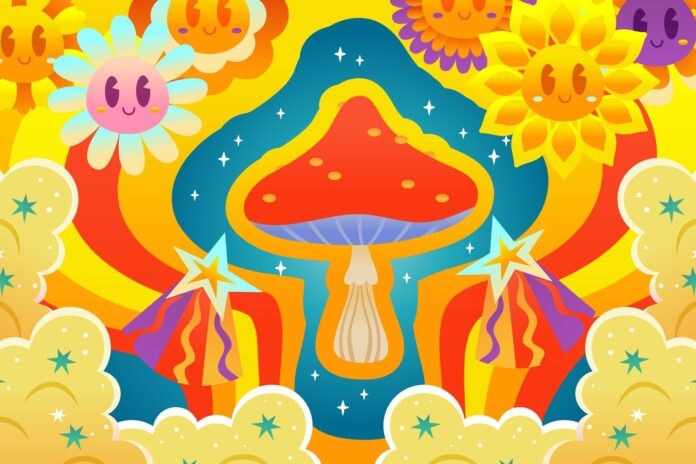In recent years, there has been a resurgence of interest in the therapeutic potential of psychedelics, particularly magic mushrooms (psilocybin-containing mushrooms), in the treatment of various mental health conditions, including depression. As research continues to unfold, the use of magic mushrooms as a novel approach to depression treatment is gaining recognition.
This article explores the relationship between magic mushrooms and depression, shedding light on the potential benefits, risks, and ongoing quest for safer, more effective treatments.
The History of Magic Mushrooms:
Magic mushrooms have been used in various cultures for centuries for their perceived mystical and healing properties. Indigenous tribes in different parts of the world have used them in shamanic rituals to gain insight and healing. In the modern era, magic mushrooms gained popularity in the 1960s during the counterculture movement, sparking research into their potential therapeutic benefits.
How Magic Mushrooms Work:
Magic mushrooms contain a psychoactive compound called psilocybin, which, when ingested, is converted into psilocin. Psilocin interacts with serotonin receptors in the brain, leading to profound alterations in consciousness, perception, and mood. These experiences are often described as “psychedelic” or “mind-expanding.”
Magic Mushrooms and Depression:
Research on the use of magic mushrooms for depression treatment is still in its early stages, but there is a growing body of evidence to suggest that they may be beneficial. Here are some key findings:
- Psilocybin’s Effect on the Brain: Psilocybin appears to reset certain brain circuits associated with depression. It promotes the growth of new neural connections and can lead to profound, lasting changes in mood and perception.
- Single Doses and Lasting Effects: Some studies have shown that a single dose of psilocybin can result in significant reductions in depression and anxiety symptoms, with the effects lasting for several weeks or even months.
- Mystical Experiences: Participants in psilocybin-assisted therapy often report having “mystical experiences” or a profound sense of interconnectedness and unity. These experiences are believed to play a crucial role in the therapeutic benefits of magic mushrooms.
- Elevated Mood and Positive Outlook: Magic mushrooms can induce feelings of joy, positivity, and emotional openness. This can help individuals with depression break out of negative thought patterns and gain new perspectives on their lives.
The Importance of Set and Setting:
The therapeutic use of magic mushrooms is typically conducted in a controlled and supportive environment. The mindset (set) of the person taking the substance and the surroundings (setting) are carefully managed to enhance the therapeutic experience and minimize potential risks.
Challenges and Risks:
While the research on magic mushrooms and depression is promising, there are challenges and risks to consider:
- Legality: In many countries, the use of magic mushrooms is illegal, making it difficult to access this form of therapy.
- Safety: Psilocybin experiences can be intense and sometimes challenging, potentially leading to temporary anxiety or confusion.
- Individual Variability: Responses to psilocybin are highly individual, and not everyone may benefit from this treatment.
- Lack of Long-Term Studies: The long-term safety and efficacy of magic mushrooms for depression have not been extensively studied.
The Road Ahead
Magic mushrooms have emerged as a potential breakthrough in the treatment of depression, offering a fresh perspective on mental health interventions. While research continues to uncover the therapeutic potential of these substances, there is much to learn and refine.
The careful integration of magic mushrooms into evidence-based, supervised therapeutic settings could one day provide new hope for those struggling with depression. As the journey into the world of psychedelic therapy progresses, it is essential to navigate with caution, respecting legal and safety considerations, and looking toward the future of more accessible, effective, and compassionate mental health care.






























